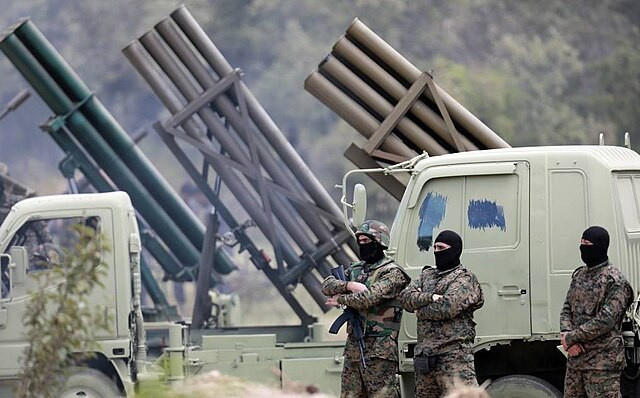Hezbollah launched a series of drone and rocket attacks into northern Israel on Tuesday, but warned that its much-anticipated retaliation for the killing of a top commander last week was yet to come. The Iran-backed Lebanese militant group claimed responsibility for a swarm of attack drones targeting two military sites near Acre and an Israeli military vehicle in another location.
The Israeli military confirmed the incursion of hostile drones from Lebanon, with one being intercepted. The strikes resulted in injuries to several civilians south of the coastal city of Nahariya. Reuters TV footage captured the aftermath, showing an impact site near a bus stop on a main road outside the city. Despite the alarms sounding around Acre, which turned out to be a false alarm, the Israeli air force retaliated by striking two Hezbollah facilities in southern Lebanon.
The recent hostilities follow the killing of Fuad Shukr, Hezbollah's senior-most military commander, in an Israeli strike on the group's stronghold in the southern suburbs of Beirut. Hezbollah leader Sayyed Hassan Nasrallah had vowed revenge, promising a "studied" response. The group has been trading fire with the Israeli military for the last ten months, with the skirmishes mostly confined to the border area. However, the latest attacks and retaliatory strikes have raised fears that the region could be on the brink of full-scale war.
In an earlier incident on Tuesday, four people were killed in a strike on a home in the Lebanese town of Mayfadoun, about 19 miles north of the border. Medics and a security source indicated that the victims were Hezbollah fighters, although the group had not yet released any death notices.
The heightened tensions come amid a broader backdrop of regional instability. US President Joe Biden held "round-the-clock" crisis talks on Monday, as fears of an imminent Iranian retaliation against Israel grew. The suspected Israeli attack that killed Hamas political leader Ismail Haniyeh in Tehran has further inflamed the situation. Tehran has vowed inevitable retaliation, with Iran's foreign ministry calling on the US to cease its support for Israel.
Hezbollah's announcement that its response to Shukr's assassination has not yet been carried out has only added to the uncertainty. A Hezbollah source told Reuters, "The response to the assassination of commander Fuad Shukr has not yet come."
Hezbollah's recent actions are part of what Iran describes as an "axis of resistance," which includes both Hezbollah and Hamas. This alliance underscores the complexity and interconnected nature of the regional conflicts, with various militant groups and state actors playing pivotal roles.
The Israeli military's interception of drones and subsequent airstrikes on Hezbollah facilities indicate a preparedness for further escalations. Meanwhile, Hezbollah's continued threats suggest that more significant retaliations could be imminent, further destabilizing an already volatile region.




